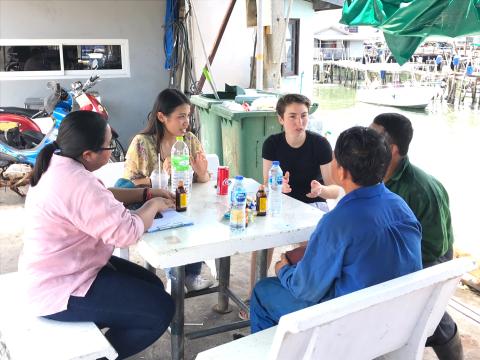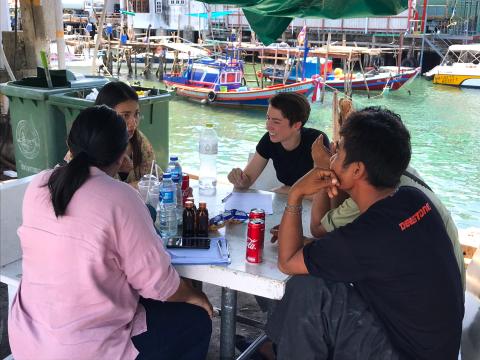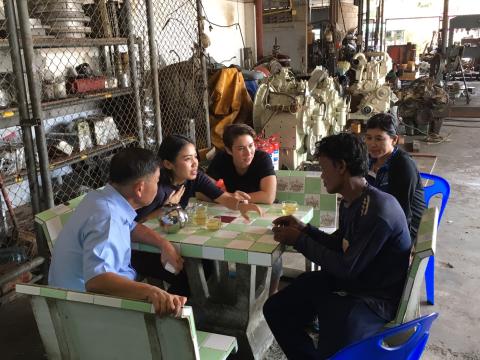How the Seafood Task Force is pioneering responsible recruitment for the seafood industry
The Importance Of Responsible Recruitment
Since 2016, the Seafood Task Force (STF) has driven a responsible recruitment programme and work has been conducted to understand recruitment challenges faced in both the shrimp and tuna supply chains.
In April 2019, the Seafood Task Force’s Board approved provisions intended to guide the implementation of the Seafood Task Force Code of Conduct and this guidance states that workers shall not be required to pay recruitment and hiring-related costs to employers, agents or labour brokers outside allowances identified by the Seafood Task Force.

The Problem We Are Trying To Solve
The seafood industry has been seen as an employment opportunity for migrant workers in South East Asia – particularly workers from Cambodia, Indonesia, Myanmar, Philippines and Vietnam. This employment opportunity has spanned from fishing vessels (offshore and distant waters) to land-based farms and manufacturers for shrimp and tuna products.
For shrimp, STF focus has been on fishers who catch fish in Thailand for the fishmeal component of shrimp feed and workers in processing plants of both feed and shrimp.
For tuna, our focus is on vessels fishing in the Western and Central Pacific Ocean and workers in processing plants in Thailand.

With often complicated and opaque worker supply chains, these migrant workers can face the risk of human rights abuses – including the withholding of travel documents, migrant registration cards, work permits, and wages.
Workers may also be exposed to the risk of illegal salary deductions by employers, physical and verbal abuse and threats of deportation. Indeed, some migrant workers are reported to have incurred exorbitant debts, both in destination country and in their country of origin.
The majority of these workers are employed through recruitment agencies and brokers to perform low-skilled work.
How We Are Tackling The Issues
Given the complexity and lack of transparency involved with the recruitment process, the Taskforce’s strategy is to educate, engage and build capacity amongst Seafood Task Force member companies, manufacturers / employers in the supply chain, and recruiters of migrant workers.
It has designed a unique programme with three distinct phases that all aim to increase awareness of recruitment related issues, share standards and best practices, engage to increase transparency and implementation of responsible recruitment practices.

Phase 1:
Concentrates on STF Member Outreach. It includes research, guidance and capacity building. In this phase, members are required to reach out to their supply chain partners educating them on the Seafood Task Force Code of Conduct.
Phase 2:
Is Seafood Task Force Employer focused and consists of awareness and alignment sessions to support solutions and implementation planning. In this phase, we identify recruitment agency nominees.
Phase 3:
Targets the Recruitment Agencies themselves and focuses on training, capacity building, corrective action and all important – remediation. The programme has been running as a pilot since 2016 and started with the shrimp supply chain. With learnings from the pilot, we are now scaling up the programme to include the feed and tuna supply chains.
The pilot is being delivered in collaboration with Verité and The Fair Hiring Initiative (TFHI). It is being funded by Seafood Task Force member dues and with outside funding thanks to the generosity of Humanity United and the Walmart Foundation.
Learnings from the pilot have resulted in adjustments in how future training and capacity building at each level of the supply chain need to be conducted.
The pilot work has also revealed a need for an Improvers’ Programme for recruiters.
This Improvers’ Program is now being developed with the intention to engage and continue to build transparency as responsible recruitment practices are implemented for Seafood Task Force member supply chains.
STF Leadership Team